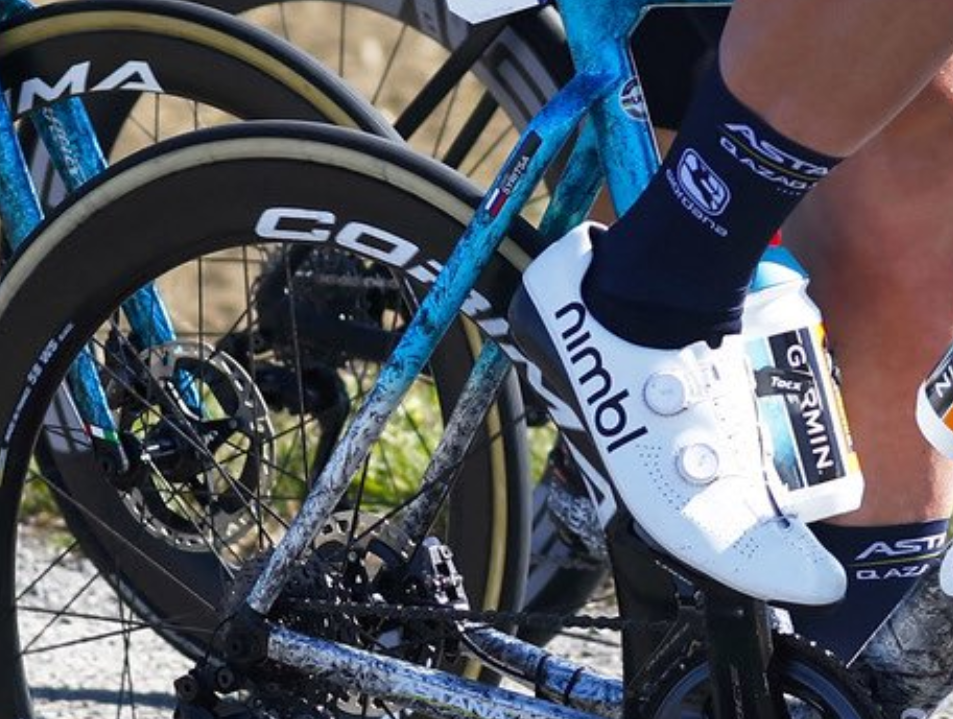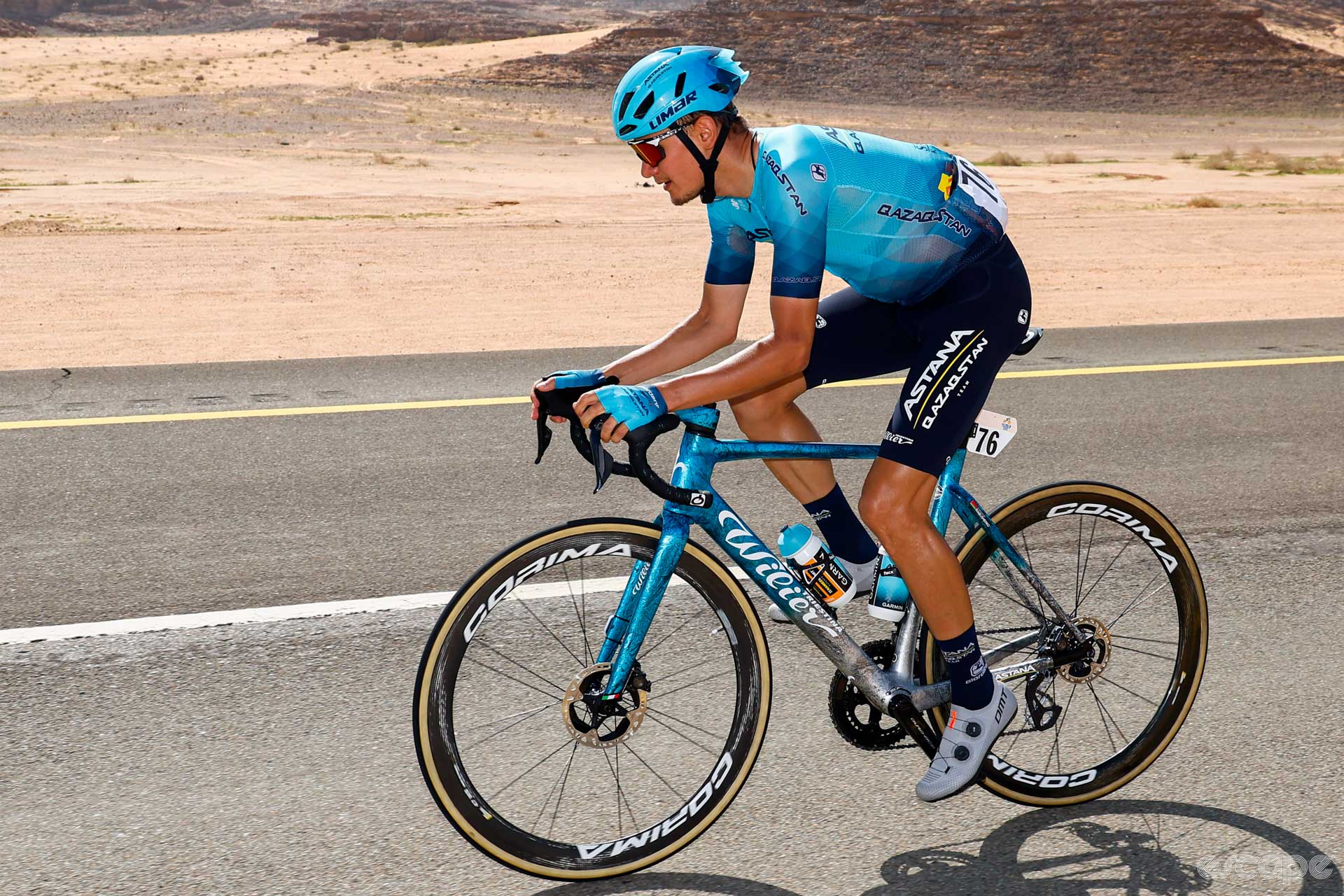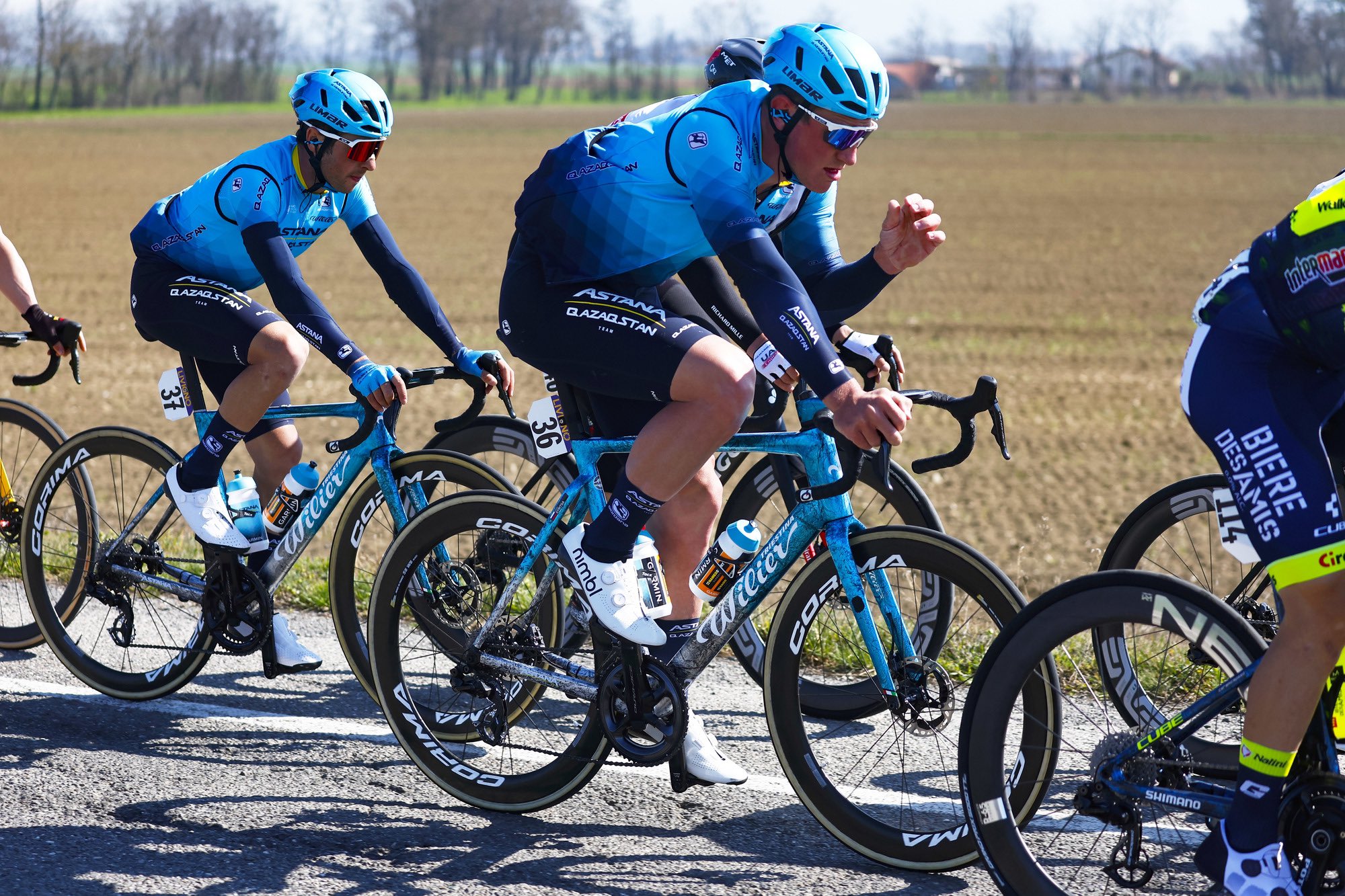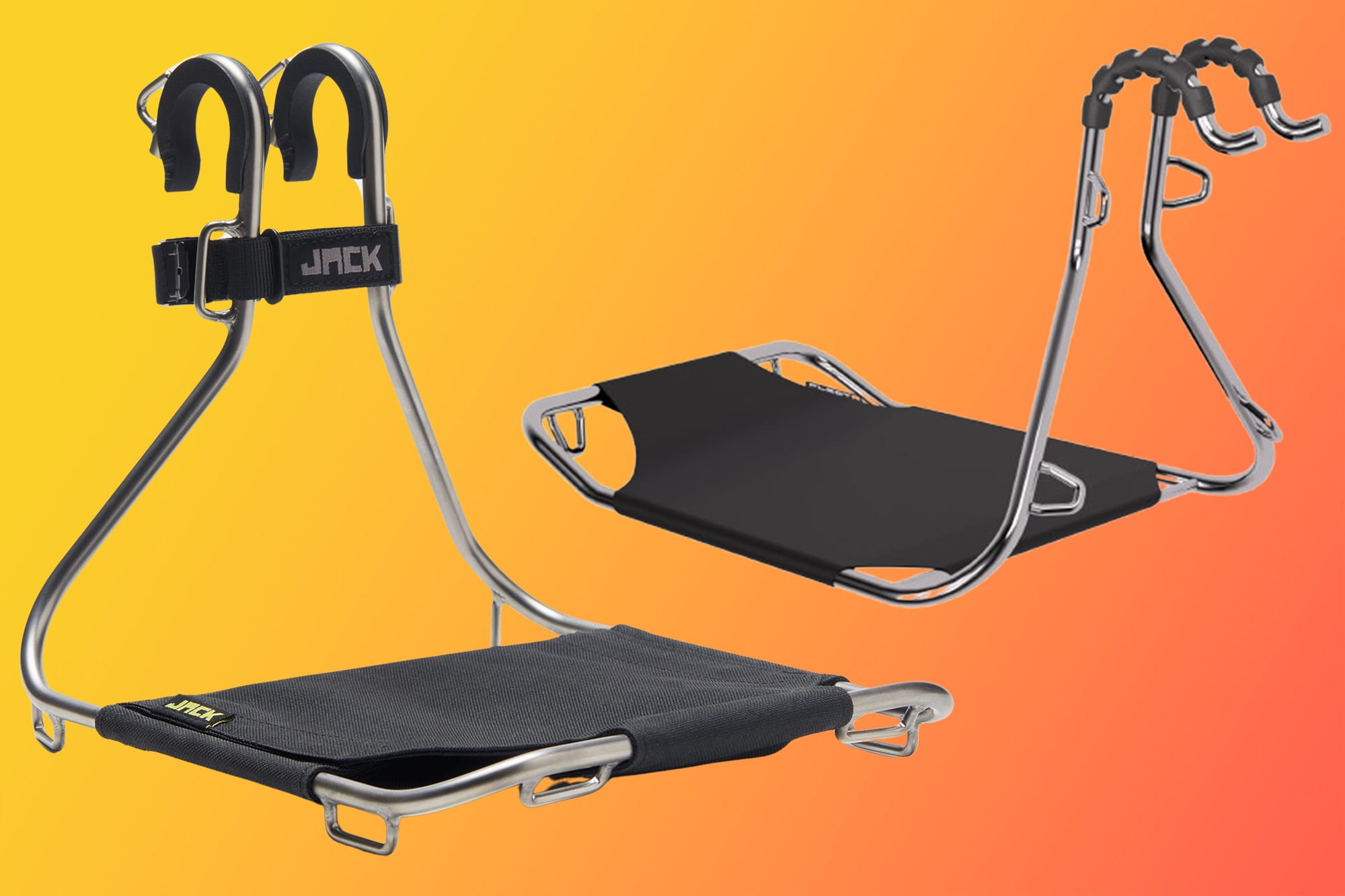Astana-Qazaqstan riders of Russian and Belarusian nationality have been riding bikes and equipment with national flags on them throughout the 2023 season, despite an explicit UCI ban on this act.

In a list of “strong measures” published by the UCI immediately after Russia’s invasion of Ukraine – with Belarusian support – the sport’s governing body mandated that “any participation of Russian or Belarusian athletes must be in a neutral capacity, and organisers are requested to withdraw any reference to Russia or Belarus, including the [country] name, emblems, acronyms and flags”.
This position was reiterated in early February 2023, in the context of a statement outlining the organisation’s support of International Olympic Committee steps toward the reinstatement of Russian and Belarusian athletes. In that resolution, the UCI expressly highlighted a “ban on display of all emblems, names, acronyms, flags and anthems linked to Russia and Belarus at all events on the UCI International Calendar”.
Despite this, two out of three Russian and Belarusian riders at WorldTour level are currently riding with national flags on their bikes and equipment. Gleb Syritsa (Russia) and Aleksandr Riabushenko (Belarus) – both of Astana-Qazaqstan – have been pictured multiple times this season with flags on the seatstays of their bikes and on their helmets. The personal stance of both riders in relation to the invasion of Ukraine is unknown, and it's not clear whether they had any say in the application of the decals.
[The only other Russian or Belarusian WorldTour rider – Aleksandr Vlasov, of Bora-Hansgrohe – appears to be compliant to the relevant UCI rule in competition, and has no flag alongside his name on the team website.]

Little flags, no consequences
A request for comment directed to the UCI’s communications department asked the following specific questions:
- Is the UCI taking any concrete steps to communicate and enforce these rules with the teams/riders?
- What consequences are there for teams/riders choosing not to abide by this position?
At time of publication, a week later, no response had been received.
A similar enquiry was sent to Astana-Qazaqstan’s press officer, allowing room for the assumption that the rule may have been overlooked. The team did not respond to this request for comment, however, and Syritsa was later seen at Gent Wevelgem riding with Russian flags still intact:

In the spectrum of possible rule-breaking, small national flags on team bikes may seem like a minor transgression, but it highlights the difficulties that the UCI has encountered in responding to the invasion of Ukraine. Entire teams were shuttered as a result of the UCI’s initial measures – leaving dozens of riders out of work, including, bizarrely, a Ukrainian athlete riding for a Belarusian team – while the Russian oligarch Igor Makarov has retained his position on the UCI Management Committee, despite being sanctioned in multiple countries. Meanwhile, measures within the UCI rulebook that are explicitly forbidden, as in the case of the flag ban, appear not to be enforced at all – and indeed, the UCI does not appear to have specified penalties that could be applied in this example.
The UCI’s many technical and regulatory documents do not make for scintillating reading, and are riddled with inconsistencies in description and enforcement. Sometimes riders are disqualified for riding in forbidden positions, and sometimes they are merely fined. Riders face tense in-competition checks of everything from their handlebar position to their sock height. It's little surprise, then, that some view the organisation as pettily pedantic about inconsequential matters.
But in that pedantry lies a frustrating truth: if a one centimetre seat setback discrepancy is a punishable offence, a one centimetre flag should be too, even if it does absolutely nothing to advance either sporting performance or Russia's standing on the world stage. As my colleague Ronan Mc Laughlin argued, in relation to Wout van Aert ChainGate, there's no point having a rule if it's just going to be ignored.
Without enforcement, as appears to be the case at Astana-Qazaqstan throughout this season, the very presence of a Russian and Belarusian flag ban risks being seen as little more than a calculated PR move – especially if it's being flouted by two-thirds of possible riders, all season long.
Did we do a good job with this story?






